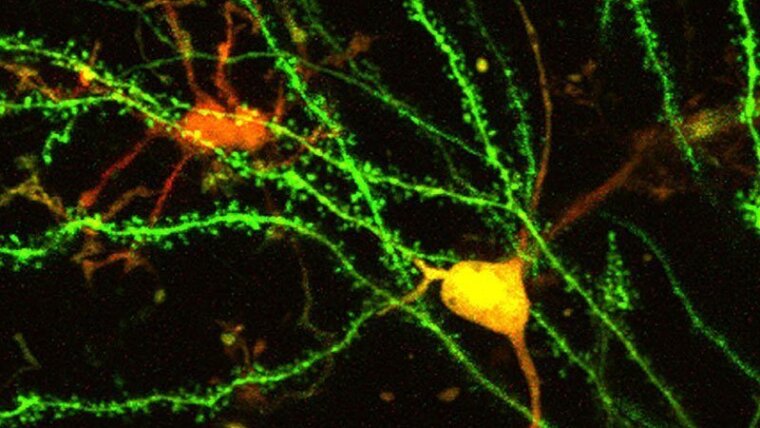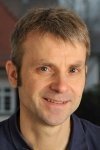
Prof. Christian Eggeling
Image: Jan-Peter Kasper (University of Jena)Prof. Dr. Christian EGGELING
Email: christian.eggeling@uni-jena.de
Phone: +49 3641-9-47670
Prof. Dr. Christian Eggeling is professor of super-resolution microscopy at the Friedrich Schiller University of Jena and heads the Biophysical Imaging Department at Leibniz IPHT. Together with his team, he optimizes advanced optical microscopy methods to better understand molecular and cellular interactions, especially on cell membranes. He has been working with fluorescence microscopy-based techniques since the 2000s and focuses on super-resolution microscopy methods, especially STED microscopy and the combination of FCS and STED to investigate molecular diffusion and interaction dynamics with very high sensitivity.
Research Areas
The research group of Christian Eggeling is focused on the development of advanced microscopy for the investigation of molecular organization and dynamics in cells, especially on the cellular plasma membrane. Highlights are the optimization of superresolution STED microscopy and its combination with single-molecule fluorescence spectroscopy tools such as fluorescence correlation spectroscopy (FCS), use of adaptive optics for deep-tissue investigations, advancements in singleparticle tracking (using fluorescence, interferometric scattering (iSCAT) and novel superresolution MINFLUX microscopy), the detailed investigation of lipid membrane heterogeneity such as lipid rafts, and biological applications of all of these tools for investigations of multiple biomedical issues such as within the Excellence Cluster “Balance of the Microverse”, the Collaborative Research Center 1278 PolyTarget, infection diagnostics or immunology. Further, fully serviced user microscope facilities have been set up and are being optimized.
Teaching Fields
Main teaching activities include bachelor biophysics lectures and exercises, master applied laser technology lectures and exercises as well as support of physics teaching practical. Further, HiWis, master and bachelor as well as PhD students are welcome and supported through various research projects.
Research Methods
The Eggeling group is specialized on advanced fluorescence microscopy techniques, especially superresolution STED microscopy in combination with fluorescence correlation spectroscopy (STED-FCS), and has access to multiple microscopes including confocal, wide-field/TIRF superresolution, structured illumination and STED microscopes, but is also using complementary approaches such as single-particle tracking and intererometric Scattering (iSCAT) microscopy. Further, a novel superresolution MINFLUX microscope was installed. Otherwise, access to biochemical wet labs, cell culture and optical labs in the Zentrum für Angewandte Forschung and the Leibniz Institute of Photonic Technology is granted (biosafety 1 and 2 space).
Recent Research Results
.
Picture: Eggeling research group.Recent research includes the use of artificial intelligence algorithms for an optimized fluorescence microscopy/ spectroscopy analysis [1], advanced microscopy of molecular interactions involved in virus infection [2-4], use of adaptive optics for optimized inner-cellular and tissue observations [5, 6], and the biophysical characterization of immune responses [7, 8].
[1] Waithe et al., J. Cell Biol. 219, e201903166 (2020).
[2] Favard et al., Science Adv. 5, eaaw8651 (2019).
[3] Chojnacki et al., Nature Commun. 8, 545 (2017).
[4] Carravilla et al., Nature Commun. 10, 78 (2019).
[5] Barbotin et al., Opt. Express 27, 23378 (2019).
[6] Barbotin et al., ACS Photonics 7, 1742 (2020).
[7] Fritzsche et al., Sci. Adv. 3, e1603032 (2017).
[8] Santos et al., Nature Immunol. 19, 203 (2019).

